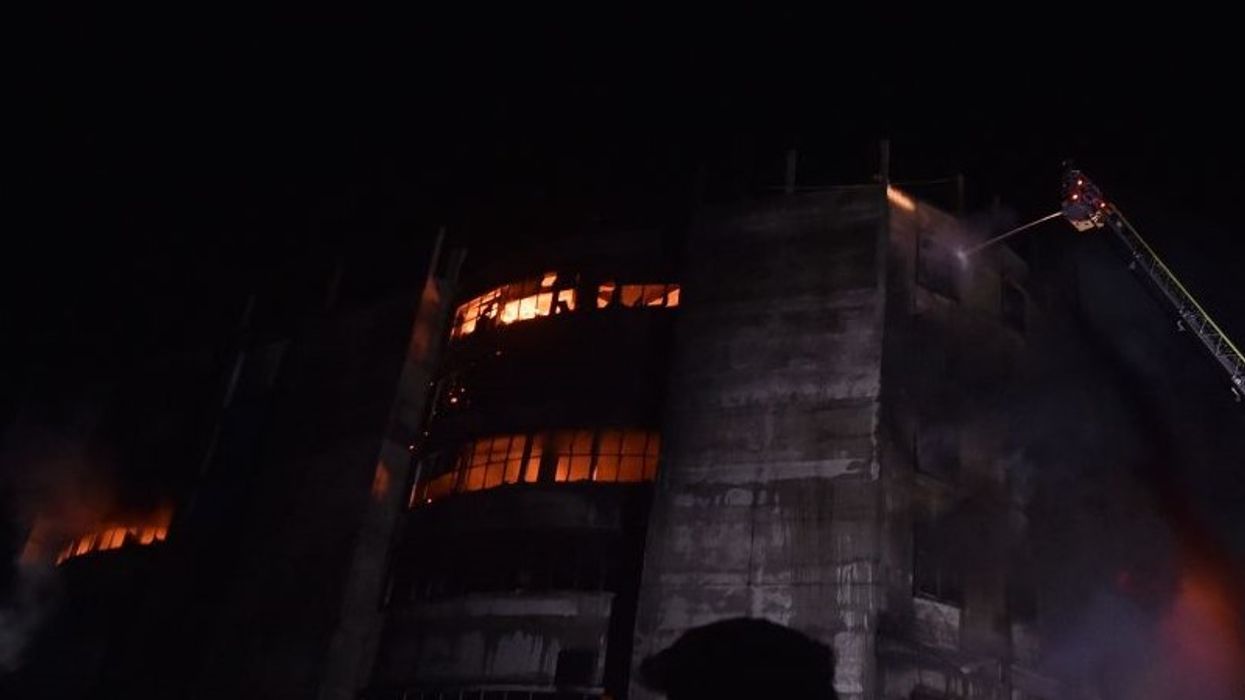A MASSIVE blaze tore through a Bangladesh factory killing at least 52 people as flames forced many workers to leap for their lives from upper floors, police said Friday (9).
About 30 people were injured and hundreds of distraught relatives of workers waited anxiously outside the food factory as the fire continued to rage.
It was the latest inferno to tarnish Bangladesh's safety record marred by a series of disasters in industrial complexes and apartment buildings.
In February 2019, at least 70 people died when a fire ripped through Dhaka apartments where chemicals were illegally stored.
The latest fire broke out at Hashem Food and Beverage factory in Rupganj, an industrial town outside Dhaka, on Thursday (9) afternoon and was still raging almost 24 hours later.
Police initially said three people died but the toll rose dramatically as firefighters reached the upper floors and started bringing out dozens of bodies of trapped workers.
The charred victims were piled in a fleet of ambulances to take them to mortuaries amid anguished shouts and tears from people watching in the streets.
Police dispersed hundreds of people who blocked nearby roads and clashed with officers.
Some of the more than 30 people injured jumped from the upper floors as flames quickly engulfed the six-storey building, police inspector Sheikh Kabirul Islam said.
Emergency services were battling to put out the fire on the fifth and sixth floors. Firefighters rescued 25 people from the roof of the factory that made noodles, fruit juices and candies.
"Once the fire is under control, we will conduct a search and rescue operation inside. Then we can confirm any further casualties, if any," Debashish Bardhan, fire service spokesman, said.
Dinu Moni Sharma, head of the Dhaka fire department, said the fire took off because highly flammable chemicals and plastics had been stockpiled inside.
Mohammad Saiful, a factory worker who escaped, said dozens of people were inside when the blaze erupted.
"On the third floor, gates on both stairwells were closed. Other colleagues are saying there were 48 people inside. I don't know what happened to them," he said.
Mamun, another worker, said he and 13 other workers ran to the roof after the fire broke out on the ground floor and black smoke quickly choked the whole factory.
"Firefighters brought us down by using rope," he told reporters.
As clouds of smoke billowed from the factory building, many of the waiting relatives said they feared the worst.
Nazrul Islam said: "We came here because my niece was not receiving our phone calls for a while. And now the phone is not ringing at all. We are worried."
Fires and building collapses are common in Bangladesh - the world's second-biggest clothing exporter after China - where building regulations are lax and volatile chemicals are often improperly kept.
At least 1,138 people died when Dhaka's eight-storey Rana Plaza factory complex collapsed in April 2013 in one of the world's worst industrial tragedies.
Another 2,000 people were injured in the disaster, which highlighted the failure of many top Western fashion brands to protect workers in poorer countries where their goods are made.
The ensuing Bangladesh Accord on Fire and Building Safety was signed in 2013 by nearly 300 European textiles groups. It is being extended for 12 months at a time while talks continue on a national body to oversee security in the country's about 4,000 workshops.
A fire swept through a nine-storey garment factory near Dhaka in November 2012, killing 111 workers. An investigation later found it was caused by sabotage and managers at the plant prevented victims from escaping.
According to survivors, the foremen and the security guards at Tazreen Fashion forced staff to return to their workstations despite thick smoke emanating from the ground floor, where the fire broke out.
In February 2006, 51 people, mainly women, died and more than 100 were injured in a fire that ravaged a textile factory in Chittagong in the south. At least 500 people were working at KTS Composite Textile when the fire broke out, probably due to a short circuit.
In November 2000, 47 people died and around 100 were injured in a fire in a towel factory in Shibpur, near Dhaka. Rescue workers managed to save hundreds of workers who were stuck inside the factory, the gates to which were locked.




